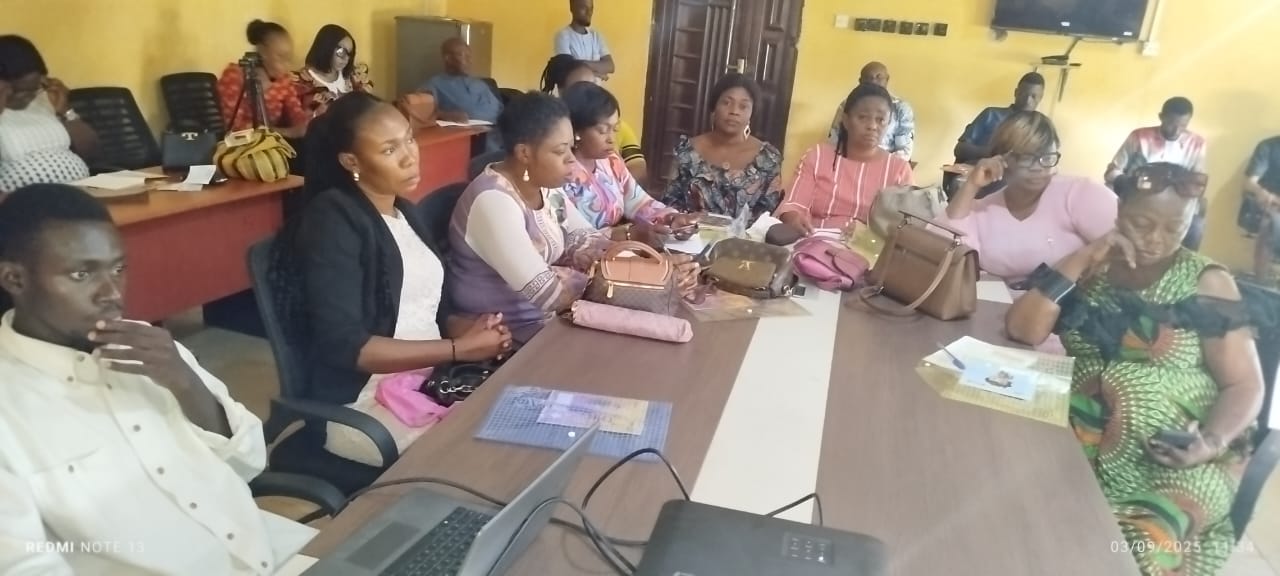The Abia Newspapers and Publishing Corporation (ANPC) has called on journalists to upscale their work by embracing ethical standards, fact-checking, and modern reporting tools to remain credible in today’s fast-changing media landscape.
Speaking at the opening of a two-day capacity building workshop for journalists in Umuahia on Wednesday, the General Manager of ANPC, Hon. Jones Nnanna Ike, stressed the need for continuous training to combat fake news, digital disruption, and declining public trust in the media.

He lauded Governor Alex Chioma Otti, OFR, for his visionary reforms in reviving state-owned media, noting that the National Ambassador Newspapers is being repositioned to compete favourably with other national tabloids.
“At ANPC, we are determined to align with the Governor’s transformative vision by building a professional newsroom where accuracy, balance, fairness, and responsibility remain our guiding principles,” Ike assured.
The workshop, was designed to equip journalists with practical skills in ethical journalism, investigative reporting, feature writing, fact-checking, and digital storytelling.







Meanwhile, the Editor of National Ambassador Newspapers, Deacon Chukwuemeka Egejuru, stressed the need for ethical and responsible use of Artificial Intelligence (AI) in modern journalism.
Delivering a lecture entitled “The Ethical Use of Artificial Intelligence (AI) in Modern Journalism”, Egejuru noted that while AI offers opportunities for speed, efficiency, and innovation in news production, it also poses risks if misapplied.
He cautioned that overreliance on AI tools without human oversight could lead to misinformation, plagiarism, and erosion of public trust. According to him, journalists must apply professional judgment, fact-checking, and editorial responsibility when using AI-driven platforms.
Egejuru further urged participants to embrace AI as a supportive tool rather than a substitute for journalistic integrity, creativity, and accountability. He emphasized that the credibility of the newsroom depends on how well journalists balance technology with ethical practice.
Also speaking, ICT expert Mr. Michael Iheadindu handled a session on “Harnessing Emerging Digital Tools for Modern Newsrooms”, focusing on equipping journalists with the skills to thrive in today’s digital media environment.
He introduced participants to the concept of the digital newsroom with emphasis on real-time publishing, multimedia storytelling, news editing using AI tools like ChatGPT, and story publishing on CMS platforms. He also highlighted the importance of cybersecurity, teaching reporters how to safeguard their devices and data through measures such as two-factor authentication and other protective practices.
In his remark, veteran journalist Mr. Chikezie Emelike underscored the centrality of ethics and professionalism in journalism. Delivering a lecture on “Ethical Journalism and Basic Principles of News Reporting and Feature Writing”, Emelike urged journalists to exhibit a high level of ethical standards in the discharge of their duties.
He maintained that truth, fairness, balance, and accuracy remain the cornerstones of responsible journalism, warning that any compromise could undermine public trust in the media. According to him, journalists must resist the temptation of sensationalism and ensure that their reports serve the public interest rather than personal or political gains.
Contributing to the training, another veteran journalist, Elder Kalu K. Eziyi, emphasized the relevance of investigative reporting, feature writing, and adherence to media laws in strengthening the practice of journalism.
Speaking on the topic “Investigative Journalism, Feature Writing Techniques and Basic Media Laws”, Eziyi described investigative journalism as a powerful tool for exposing wrongdoing, promoting accountability, and safeguarding the public interest.
He urged participants to approach investigative assignments with courage, patience, and attention to detail, stressing that only well-researched and verified information should be published. He further advised that journalists must strike a balance between the public’s right to know and respect for the rights of individuals, adding that ethical responsibility should always guide their work.

























